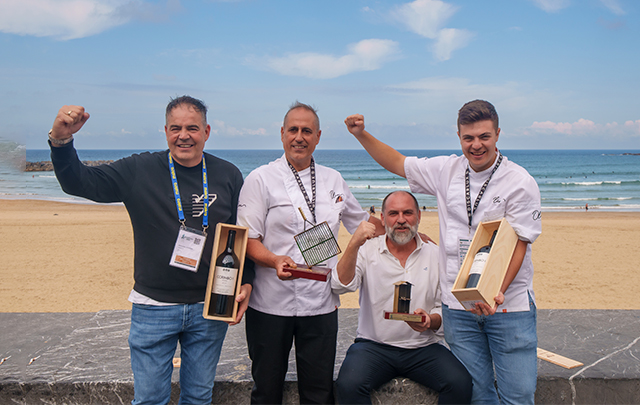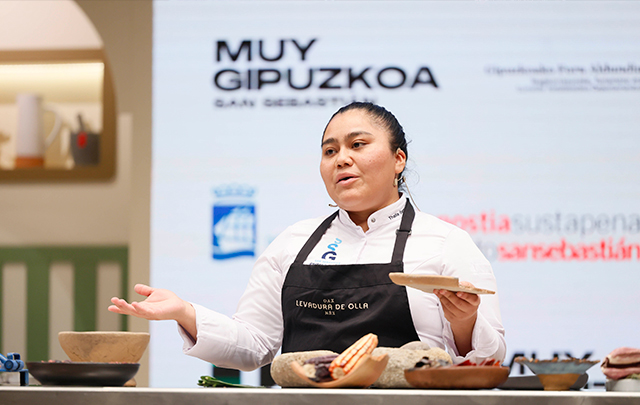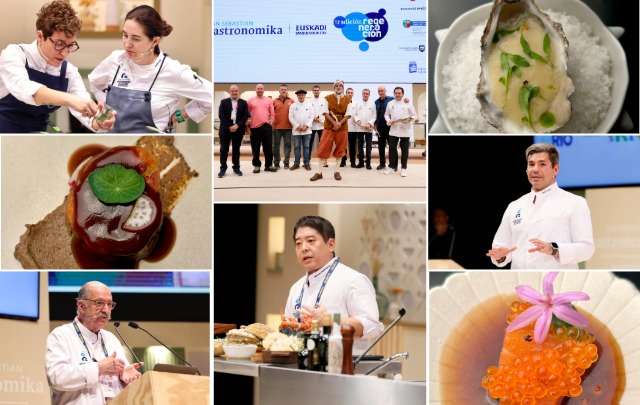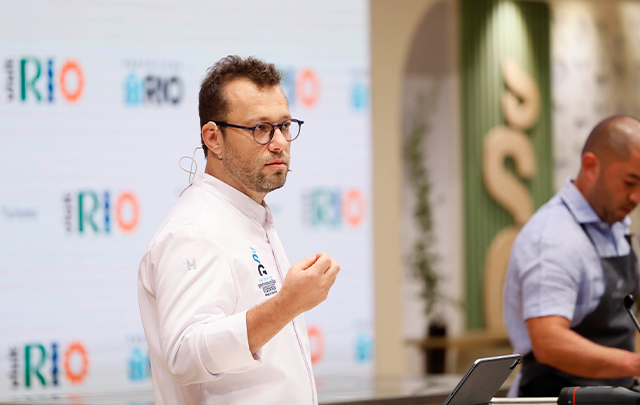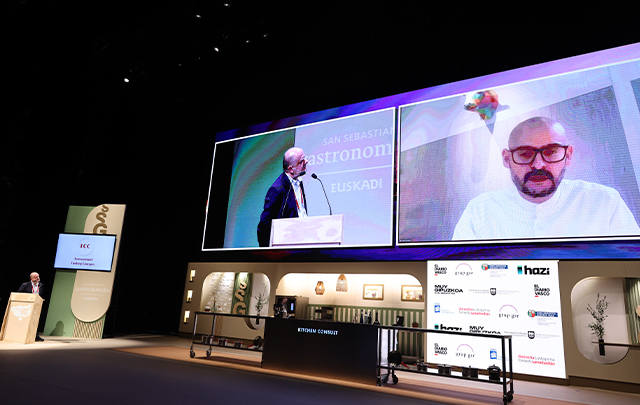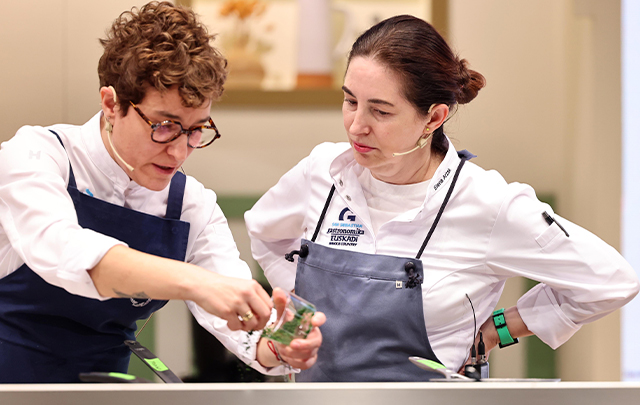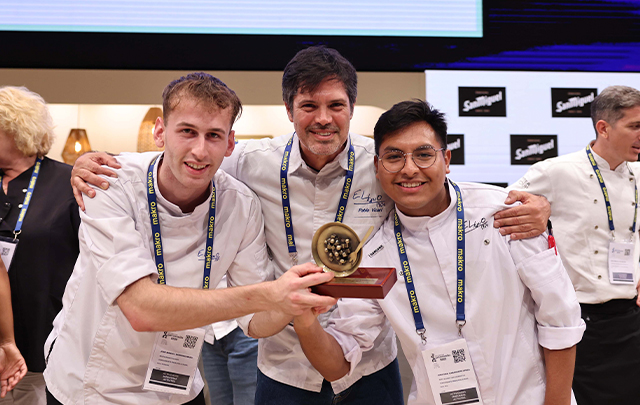News
‘The real fire starts when the flames are extinguished’

The Gastronomika stage has reignited the heated debate on summer fires and their tragic consequences in rural areas
With the help of three prominent figures and activists from the gastronomy sector, Benjamín Lana, the managing director of Vocento Gastronomía and San Sebastián Gastronomika, wanted to highlight the role of the restaurant industry ‘beyond its hedonistic aspect as a powerful tool for the future to help transform and improve its environment’. Thus, by intertwining gastronomy, territory and sustainability, he opened an interesting round-table discussion on issues such as the impact of forest fires on local produce, and the role of rural chefs as guardians of the territory.
Zamora-born chef Luis Lera, of Lera* in Castroverde de Campos, said that ‘the worst consequence is the emotional damage caused by the feeling of abandonment and falling into oblivion. When the fire is extinguished, we do not receive enough support to recover what has been lost,’ and he denounced ‘the complacency of society and excessive legal control as the main causes of forest neglect’.
Restoration is key to securing the territory
Borja Marrero, chef at Muxgo* (Las Palmas de Gran Canaria), who suffered heavy losses in the fires that ravaged his island in 2019, agreed with him. “The real fire starts when the fire goes out,” he said, “because of the difficulties we encounter in restoring the territory. Here, restaurants play a vital role in stabilising the territory, as they are helping to revive the rural primary sector and promote the growth of agriculture and livestock farming, making the mountains less vulnerable."
Joining them was José Gordón, the owner of Bodega El Capricho. Located in the small village of Jiménez de Jamuz in León, the restaurant is considered a world leader in ox meat cuisine. 'After a fire, the worst thing you lose is faith in society's ability to collaborate,' he lamented. You feel very alone, and it is frustrating to see a territory that your ancestors cared for and respected so much deteriorating,’ he lamented. He and his fellow diners agreed on the important role of restaurants in rural regeneration, 'by promoting a much-needed micro-economy'.
The solution: to give rural areas more freedom
José believes that local people should have more autonomy, as regulations often hinder firefighting efforts and subsequent regeneration due to a disregard for local knowledge, as well as a lack of support and coordination between different administrations. He demanded a proactive approach to this fight, with a commitment to designing protective measures. Borja also advocated ‘better coordination that gives the environment more autonomy to make its own decisions. We need more facilities,” he warned.
Luis Lera translated this into a more emphatic word: ‘freedom’. To achieve this, he invited the rural environment to ‘come out of its complacency, wake up and look critically at what is happening, discover the real reasons and prevent ourselves from being manipulated. We must organise ourselves better and be mentally stronger,' he concluded.



